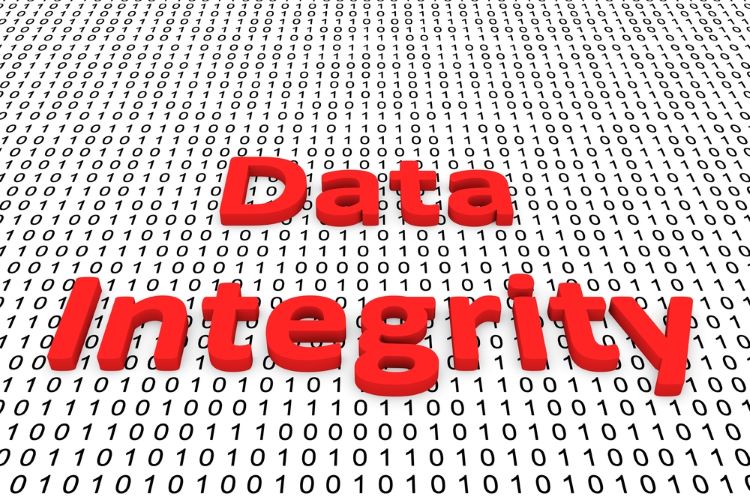Data integrity considerations in pharma and life sciences
Posted: 12 March 2024 | Joseph Boakai | No comments yet
In this Q&A, data expert Joseph S Boakai addresses decisive factors impacting data integrity in the pharma and life sciences industries.


Data integrity is the term used to describe the accuracy, consistency and reliability of data throughout its lifecycle. In the pharmaceutical/life sciences industries, maintaining data integrity is crucial given its role in making critical decisions that shape outcomes from drug development to human health.
What are three current key trends in data integrity?
Joseph S Boakai (JSB): The three current trends are as follows:
- Increased scrutiny by regulatory bodies. Ensuring data integrity in the life science industry is crucial for regulatory compliance. Regulatory bodies such as the US Food and Drug Administration (FDA) and European Medicines Agency (EMA) place great importance on data integrity in the pharmaceutical/life science industry. They are enforcing stricter regulations and guidelines to ensure that the data generated throughout the lifecycle of pharmaceutical products, from R&D to manufacturing and distribution, is reliable, accurate and consistent.
- Use of advanced technologies. Life science companies are increasingly using advanced technologies like artificial intelligence (AI), machine learning (ML) and blockchain to improve data quality and integrity by detecting anomalies in data and establishing tamper-proof audit trails for all data-related activities
- Data governance. There is growing awareness of the importance of implementing robust data governance frameworks and compliance programmes to ensure the integrity of data. Life science companies are investing in comprehensive data governance strategies to establish clear policies, procedures and controls for managing data. Compliance with regulatory requirements such as good laboratory practice (GLP), good clinical practice (GCP), and good manufacturing practice (GMP) is crucial to ensure data integrity and regulatory compliance throughout all stages of product development and commercialisation.
What is the biggest impact of having compromised data when working with regulatory bodies in the pharmaceutical industry? How can this be mitigated?
JSB: When working with regulatory bodies in the life science industry, data integrity is of utmost importance. If data used to support the safety, efficacy and quality of pharmaceutical products is compromised or unreliable, it can lead to regulatory non-compliance, product recalls, and most importantly, harm to patients who depend on those medications.
Data integrity breaches can cause significant damage to a company’s reputation, erode trust among stakeholders, and result in severe regulatory penalties such as fines, product bans or legal action. Furthermore, regulatory agencies may delay or reject the approval of new drugs or medical devices if they have any doubts about the accuracy of the data submitted in support of marketing authorisation applications.
To mitigate the risks associated with compromised data integrity, life science companies can implement the following measures:
- Establish robust data management systems. It is important to implement comprehensive systems and processes to manage data effectively. These systems should ensure that data is collected, recorded and maintained accurately, securely and consistently throughout the product’s lifecycle. This can be achieved by implementing electronic systems with built-in controls to maintain data integrity, audit trails and access controls.
- Good documentation practices. Following good documentation practices (GDP) throughout all stages of data generation, collection, analysis and reporting is vital. This involves keeping accurate and up-to-date records, documenting any deviations and corrective actions, and providing sufficient training to employees on GDP standards. By enforcing GDP, we can ensure the quality and integrity of our data.
- Implement quality management systems. To comply with regulatory standards and guidelines, it’s important to implement quality management systems (QMS) that are based on principles such as GMP, GLP and GCP. This involves regularly conducting internal audits and inspections to identify any potential gaps or non-compliance issues that need to be addressed. By implementing QMS, companies can ensure that their products and services meet the highest quality standards and are safe for consumers.
- Training and education. Investing in this area is crucial for maintaining data integrity, regulatory compliance and best practices. This involves providing continuous training and education to all employees at every level. Such training can help to raise awareness and create a culture of accountability and compliance within the organisation.
- Transparent communication with regulatory authorities; this is key during the product development and regulatory submission process. It is advisable to address any concerns or issues related to data integrity proactively and demonstrate a commitment to resolving them in a timely and effective manner. This will help gain the trust of regulatory authorities and ensure a smooth and successful approval process.
By implementing these measures, life science companies can mitigate the risks associated with compromised data integrity and demonstrate their commitment to quality, compliance, and patient safety in their operations.
What is the greatest current challenge in maintaining data integrity? What is an effective solution?
JSB: Maintaining data integrity is becoming increasingly challenging due to the rapid advancement and complexity of technology in data generation, storage and analysis. With the proliferation of digital tools, systems and platforms, it has become difficult to ensure the integrity of data throughout its lifecycle. This challenge is further compounded by the evolving regulatory landscape, requiring stringent data integrity requirements to be met.
An effective solution to tackle this challenge is to implement advanced data integrity management systems using emerging technologies such as blockchain and AI. Here are some examples:
- AI and ML technologies can be used to identify any abnormalities or inconsistencies in data that could point towards potential data integrity issues. Their advanced algorithms can analyse large datasets and quickly pinpoint patterns or deviations, flagging any suspicious activities or data points for further investigation. By continuously monitoring data integrity in real time, AI-driven systems can help prevent and mitigate data integrity breaches before they become a bigger problem.
- Blockchain technology creates a decentralised and unalterable ledger that records all transactions across a network of computers. Life science companies can use this technology to establish a tamper-proof audit trail for all data-related activities, including data generation, modification and access. Every transaction is time-stamped, cryptographically signed and linked to previous transactions, thereby ensuring data integrity and traceability. Any attempt to modify or manipulate data would require consensus from the network, making it virtually impossible to tamper with data without being detected.
- Data governance frameworks: As stated above, having robust data governance frameworks in place is crucial to ensure data integrity is maintained. This involves establishing clear policies, procedures and standards for managing data, and ensuring that data quality and consistency are consistent throughout the organisation. Data governance frameworks should cover data validation, authentication, encryption, access controls and data lifecycle management practices to protect data integrity at every step.
- Employee training and awareness is crucial given their critical role in maintaining data integrity. Therefore, providing comprehensive training to employees and raising their awareness about the significance of data integrity, regulatory requirements and best practices for data management is imperative. Empowering employees to recognise and report potential data integrity issues can help prevent breaches and ensure compliance with regulatory standards.
These solutions enable organisations to uphold high standards of data integrity, compliance and patient safety while adapting to the evolving demands of the industry.


What is the main recommendation you would make to the pharmaceutical/life science industry to ensure a strong data governance framework?
JSB: The main recommendation I would make is to prioritise a robust data governance framework through comprehensive planning, implementation and continuous improvement. Here is a breakdown of the main steps involved:
- Establish clear policies and procedures to effectively manage data. This involves developing comprehensive guidelines for data governance, including standards for data quality, access controls, validation processes, retention policies and security measures. These policies must be aligned with regulatory requirements and industry best practices to ensure that data is managed effectively.
- Define roles and responsibilities of the individuals and teams involved in overseeing data governance activities . This can be achieved by designating data stewards, data custodians and data governance committees, and ensuring that their roles and responsibilities are clearly defined and understood across the organisation. This will help to ensure that data is managed effectively and securely and that everyone involved in the process is aware of their responsibilities.
- Implement data quality controls to ensure that data is accurate, complete and consistent. This may include regular data audits, data validation checks, and data profiling techniques to identify and correct any data quality issues.
- Implement access controls to ensure that sensitive data is not accessed or manipulated by unauthorised personnel. Role-based access control (RBAC), data encryption, multi-factor authentication (MFA), and other security measures can be used to safeguard data against unauthorised access, manipulation or theft.
- Training and awareness for all employees at all levels. These programmes should cover the policies, procedures and best practices related to data management, data security and regulatory compliance. It is essential to ensure that all employees understand their roles and responsibilities concerning these aspects of data governance.
- Monitor and audit compliance with data governance policies and procedures. This involves conducting periodic reviews and assessments to identify any gaps, weaknesses, or non-compliance issues that may arise. When such issues are identified, it is important to take corrective actions as needed. It is also essential to establish mechanisms for reporting and investigating any data governance violations or breaches that may occur.
- Continuous improvement is a crucial aspect of data governance. It involves systematically assessing and enhancing the data governance framework based on feedback, lessons learned, and emerging industry trends. To stay updated on regulatory requirements, it’s essential to incorporate them into the data governance framework as needed. Additionally, fostering a culture of continuous improvement and accountability within the organisation can help achieve better outcomes.
Implementing a robust data governance framework can help the pharmaceutical/life science industry manage and safeguard data assets, ensure regulatory compliance, and maintain high standards of data integrity and quality throughout the organisation’s operations.
When considering data integrity in the pharmaceutical industry or in life sciences, what aspect is most overlooked by those working to meet GMP or GLP standards?
JSB: The importance of human behaviour and culture in maintaining data integrity is often overlooked in this industry, especially when working to meet GMP or GLP standards. Technical solutions such as controls and procedures are typically prioritised to ensure data integrity, while the role of human factors is frequently underestimated.
Specifically, the following aspects related to the human factor are often overlooked:
- Training and awareness: To maintain the integrity of data and comply with GMP or GLP standards, it is essential that all personnel involved in data generation, collection, analysis and reporting receive adequate training and awareness. Lack of proper training can lead to errors, omissions, or intentional data manipulation, which can compromise data.
- Fostering an integrity culture and ethical behaviour is crucial for ensuring that employees feel empowered to raise concerns, report incidents, and adhere to established policies and procedures. Prioritising shortcuts or results over integrity can increase the risk of data manipulation or falsification, which is why it is essential to cultivate a culture that values honesty and transparency.
- Human error management. Implementing effective measures to mitigate the risk of human error includes establishing error-checking procedures, providing clear and concise instructions, and establishing systems for double-checking critical data entries. Human errors, whether intentional or unintentional, can have significant implications for data integrity.
- Ethical leadership is essential in promoting a culture of integrity within an organisation. Leaders have a critical role in setting the tone for ethical behaviour by leading by example, communicating expectations clearly and holding employees accountable for upholding data integrity standards.
- Whistleblower protection: Providing mechanisms for employees to report any concerns or incidents related to data integrity without fear of retaliation. These policies encourage employees to come forward with any information about potential data integrity violations, which can help prevent and address issues promptly.
Companies in the pharmaceutical industry and life sciences can improve their overall data governance framework and enhance compliance with GMP or GLP standards by recognising the importance of the human element in maintaining data integrity.
What excites you about the future of data integrity?
JSB: The potential for innovative technologies and approaches to transform how we ensure the reliability, accuracy and security of data across various industries, including the pharmaceutical /life sciences.
- Emerging technologies: As previously stated, the rapid development of emerging technologies such as blockchain, AI, and advanced encryption techniques holds immense promise for enhancing data integrity. Blockchain offers a tamper-proof mechanism for recording and verifying data transactions across a network of computers. AI and ML algorithms can analyse large datasets in real time to detect anomalies and ensure data quality.
- Collaboration: Data integrity is a complex issue that requires expertise from multiple fields, including technology, regulatory compliance, cybersecurity and ethics. Collaborating across these disciplines promotes innovation and knowledge-sharing, which leads to more effective approaches for ensuring data integrity. This collaboration is essential for addressing the challenges presented by data integrity in today’s fast-paced digital environment.
- Enhanced regulatory oversight: Regulatory bodies are becoming more concerned about data integrity in response to the growing advancements in technology and increasing concerns about data security and trustworthiness. This emphasis on data integrity is leading to enhanced regulatory oversight, which is encouraging organisations to take proactive measures to maintain data integrity. As a result, this is driving innovation and continuous improvement in data governance practices.
- Transparency and accountability: There is a trend towards promoting transparency, accountability and ethical behaviour in data management practices. More and more businesses are realising the significance of fostering a culture of integrity where employees are empowered to maintain high standards of data governance and compliance. This cultural shift helps to build trust among stakeholders and enhances the integrity of data across the board.
- Societal impact: The future of data integrity has significant implications for society. If we can ensure the accuracy of data, it could lead to improved healthcare outcomes, drug safety, cybersecurity, and protection of individual privacy rights. This, in turn, could create new opportunities for innovation, drive economic growth, and allow us to tackle complex societal challenges in areas such as healthcare, environmental sustainability and social justice.
In summary, data integrity is exciting because it represents the convergence of technological innovation, regulatory evolution, cultural change, and societal impact. We can create a future where data is trusted, reliable and used to generate positive outcomes for individuals and society by harnessing the power of emerging technologies and cultivating a culture of integrity and accountability.
About the author


As an engineer and ICT professional, Joseph has designed and optimised information systems to meet the unique needs of the pharmaceutical/life science industry, addressing challenges related to data security and interoperability.
Related topics
Data Analysis, Data integrity, Drug Safety, Industry Insight, Regulation & Legislation, Research & Development (R&D), Therapeutics









